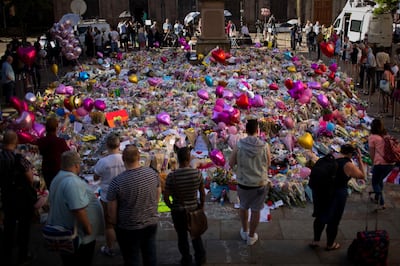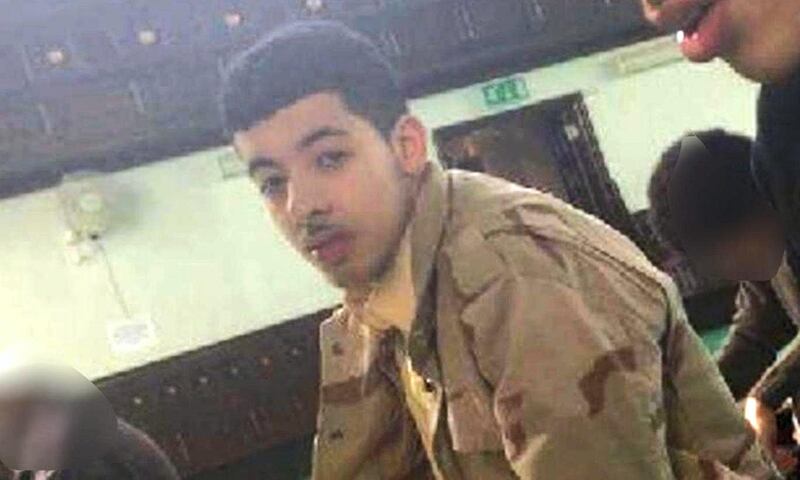Not only had the Manchester bomber, who killed 22 concertgoers in May 2017, previously travelled to his father’s homeland to fight with Islamist factions but it has now been revealed that the authorities failed to pick up that Salman Abedi went through a rigorous application process to visit a known extremist in a British prison.
The cocktail of ingredients for a “wannabe” terror attacker was in place, a British security official conceded in a parliamentary report published on Thursday when questioned over the visit to a prisoner, named in media reports, as Abdal Raouf Andallah, who was jailed for recruiting fighters to travel to Syria.
“It is reasonable to suppose… that the nature of the visit was a sort of junior want-to-be extremist in the shape of [Abedi], visiting someone to whom he looped up,” an MI5 officer said.
The prisoner was was only identified in the Intelligence and Security Committee (ISC) as Category A inmate but that means, it said, that Abedi would have been subject to a degree of securityscrunity before being permitted to make such a visit. Despite this and his travel record, Abedi was never recommended for the country counter-extremism programme, Prevent, much less subjected to surveillance as a potential security threat.
The ISC called for answers on why, despite visiting the prisoner on more than one occasion and thereby alerting himself to security services, “no follow-up action” was taken by either MI5 or police to investigate Abedi’s intentions.
The damning report published by the parliamentary committee investigated the five terror attacks last year in Britain said MI5 had missed opportunities to prevent the attack on an Ariana Grande concert at the Manchester Arena venue killing 22 from an audience predominantly made-up of young girls and parents.
Abedi was a 22-year-old Briton, who was born to Libyan parents, had been known to MI5 since 2014 and was briefly investigated by the agency.
However, no travel monitoring or restrictions were placed upon Abedi meaning he could return undetected to Britain from Libya days before the bombing. It was in Libya that he was believed to have been taught how to make a bomb.
“There were a number of failures in the handling of Salman Abedi's case and while it is impossible to say whether these would have prevented the devastating attack, we have concluded that, as a result of the failings, potential opportunities to prevent it were missed,” said Dominic Grieve, ISC chair.
He added: “The lessons from last year’s tragic events must now result in real action.”

The Manchester Arena bombing was the deadliest of the five terror attacks that year. Twelve more died in three vehicle attacks on Westminster Bridge, London Bridge and Finsbury Park mosque.
MI5 failed to “join the dots” about the danger posed by Westminster attacker Khalid Masood, despite evidence that he had been in contact with known extremists on numerous occasions.
The report found that police had arrested the London Bridge Khuram Butt ringleader eight months before the attack took place, despite finding terror material which could have seen him prosecuted.
The ISC committee also criticised the handling by British authorities of a teenager who left a bomb on the London Underground in September 2017. The bomb, which only partially detonated at Parsons Green, did not cause any fatalities.
The Home Office failed to cooperate with an investigation into how Ahmed Hassan, the Parsons Green bomber, went undetected, the report said.
Iraqi refugee Hassan, who received a life sentence for the crime in March this year, arrived in Britain illegally in 2015.
_______________
Read more:
Britain accused of letting down victims of terrorism
Libya planning to extradite Manchester bomber’s brother to the UK
_______________
Home Secretary Sajid Javid said his department would review and formally respond to the report in due course.
"Following the attacks, the government, police and MI5 undertook a series of rigorous reviews to ensure we are all doing everything we can to tackle the evolving threat of terrorism," Mr Javid said.
Britain’s head of Counter Terrorism Policing said they would be looking “in detail” at the full report.
"There will be further scrutiny and examination into the circumstances of these attacks, including coronial inquests and other potential criminal proceedings, which may preclude us for the time being from commenting publicly to some specific points raised,” said Assistant Commissioner Neil Basu.
"In the meantime, we would like to reassure the public that ever since the attacks of last year we have sought to learn from what happened before, during and afterwards, and improve our wider operating model and ways of managing and mitigating the risk from terrorism.”







